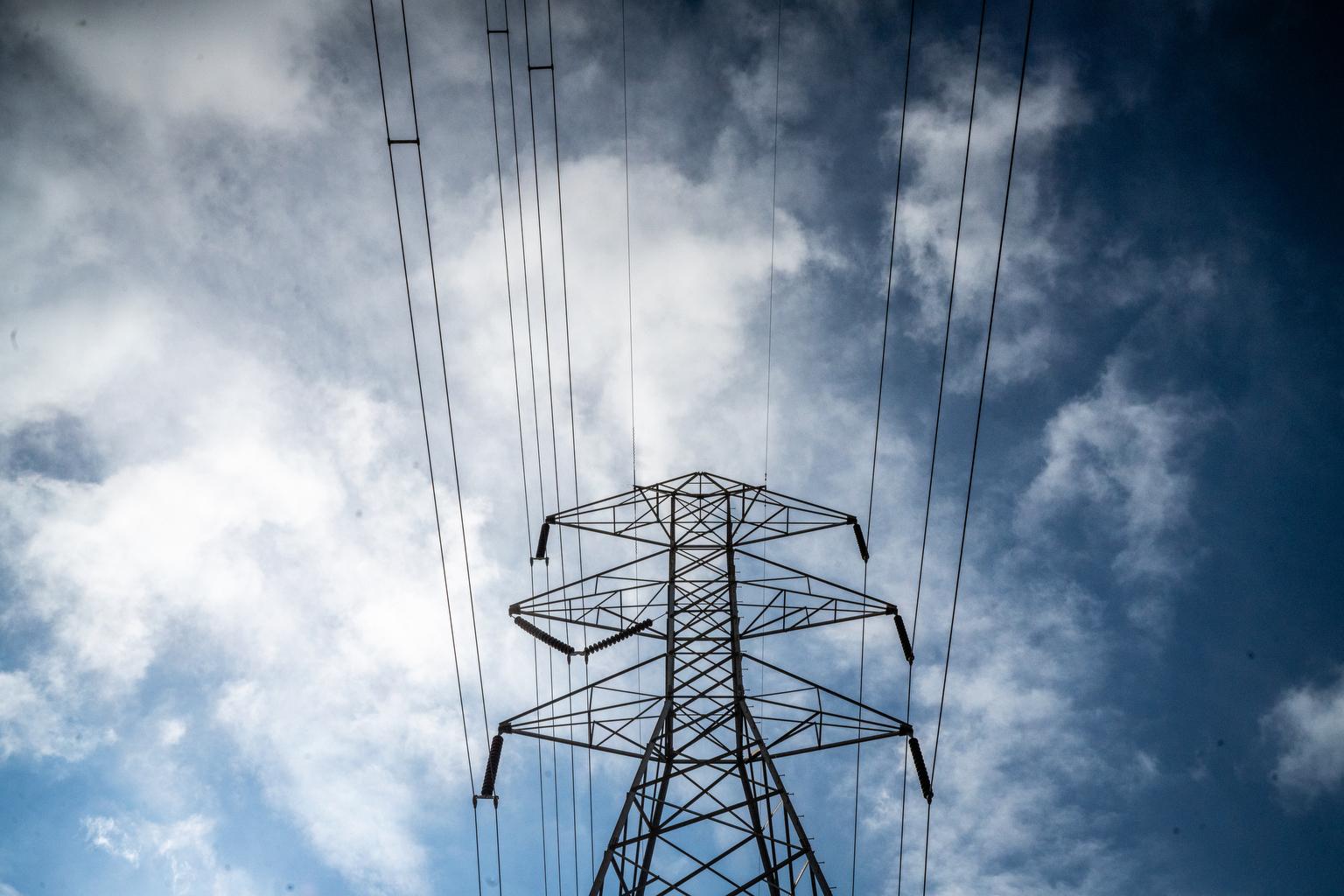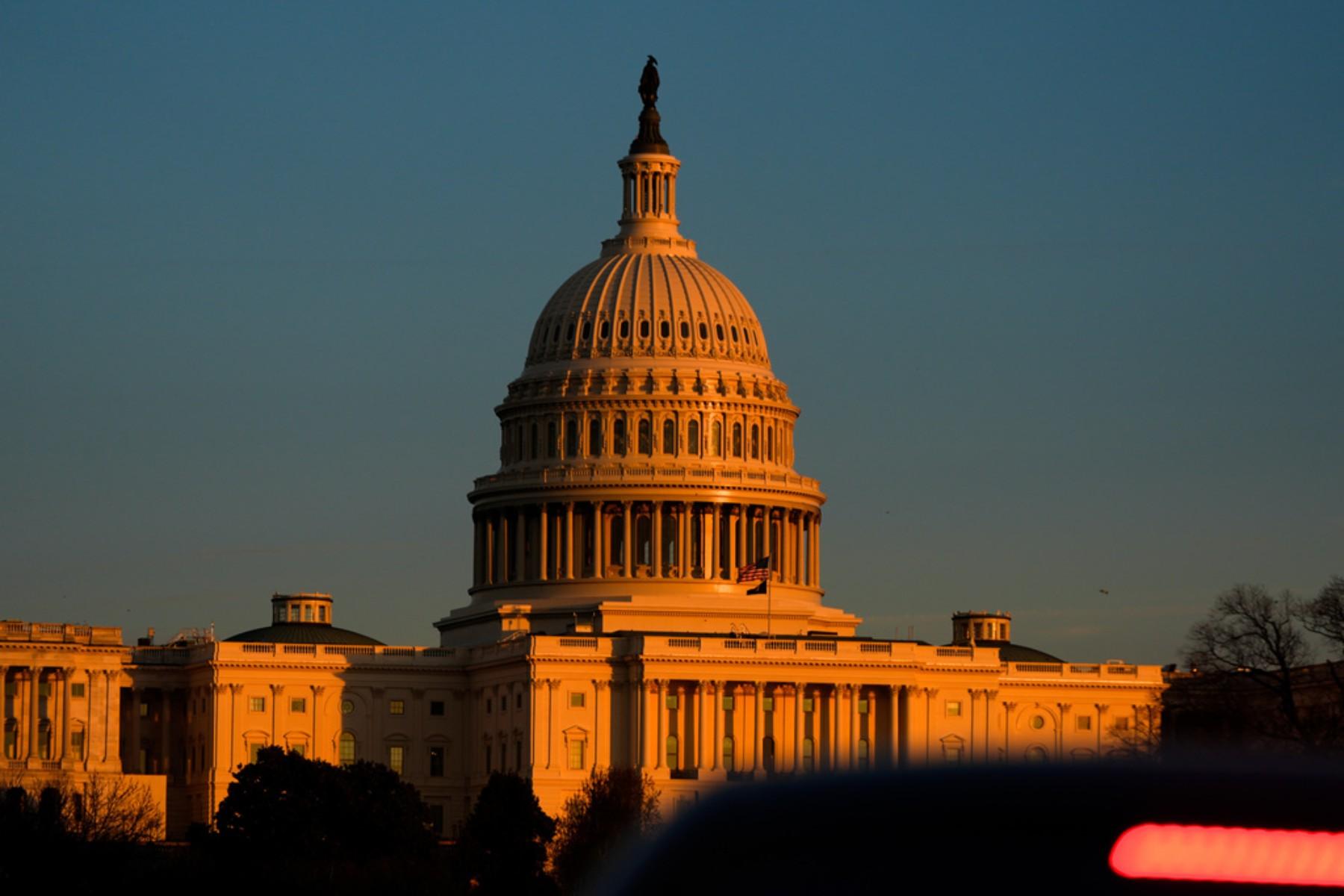
The U.S. Senate is debating a multi-trillion-dollar megabill meant to enact President Trump’s domestic agenda after House lawmakers approved the legislation last month. At the same time, Colorado utility leaders are warning the plan could upend their operations and lead to higher energy prices for their customers.
Mark Gabriel, the CEO of Brighton-based electricity cooperative United Power, is leery of the potential rollbacks within the bill, but not for ideological reasons.
“I don’t have Birkenstocks and dreadlocks,” Gabriel told an in-person round table held by Democratic Sen. Michael Bennet last Thursday. “ As a dumb, old utility guy, I just want to make sure we safely keep the lights on and do it at an affordable price.”
If the sprawling proposal becomes law, Gabriel said United Power will have to increase rates to pay for the solar and wind projects necessary to keep up with rising energy demand. That’s because the current version of the bill would end clean energy tax credits Democrats approved in the Inflation Reduction Act, the landmark climate law signed by former President Biden in 2022.
The legislation would sunset the tax credits over time rather than scrapping them immediately. Future wind and solar projects must break ground within 60 days of the budget bill’s passage and begin operations by 2029 to qualify for the clean energy incentives. Colorado utilities, however, say the timeline doesn't give them enough time to adjust their current plans to expand energy production.
It’s unclear exactly how much the bill could increase Colorado energy prices. New York-based Rhodium Group, an energy research firm, has estimated the tax credits would save U.S. consumers 2 to 4 percent on their electricity bills by 2030. A separate analysis from Princeton University’s ZERO Lab estimates the average U.S. household’s energy costs could increase by roughly $100 to $160 per year by 2030 if the Republican proposal becomes law.
The D.C.-based Clean Energy Buyers Association, an advocacy group representing large businesses committed to buying renewable energy, released a report in May estimating that cutting the incentives would increase the average Colorado household’s electricity bill by 4.7 percent by 2032.
Why utilities say the Republican proposal could inflate energy bills
Gabriel said United Power‘s expansion plans help illustrate the importance of renewable energy incentives.
The cooperative utility delivers electricity to a 900-square-mile service territory covering parts of the suburbs north and west of Denver. Its customer base includes a rapidly growing number of households and oil and gas operators, which he said account for nearly a third of its revenue.
The utility isn’t only counting on renewables to meet its growing electricity demand. United Power has financed the construction of a natural gas power plant on the Eastern Plains and will continue relying on fossil fuels as part of its mix for power production.
But it has also signed contracts with developers building new solar, wind and battery storage projects, which Gabriel said is the cheapest way to add capacity to the energy grid. The electricity cooperative was counting on tax credits to help mitigate the overall cost of its expansion.
Without federal support, Gabriel said there’s a good chance the projects won’t move forward unless the cooperative agrees to pay higher prices. He said customers will ultimately end up covering those additional expenses.
“We don't have shareholders, we don't have anyone else to bear those increased costs if we want these projects to proceed to fruition,” Gabriel said.
Robert Kenney, the president of Xcel Energy Colorado, also joined the round table organized by Sen. Bennet. The utility is by far the state’s largest electricity provider, serving 1.6 million electricity customers around Metro Denver and Colorado’s Western Slope.
Xcel is also counting on clean energy to meet rising energy demands and Colorado’s strict climate goals. To cut its carbon impact, the massive investor-owned utility plans to close all of its coal-fired power plants by 2031.
To manage the transition, Xcel Energy has already won approval from state regulators to build $12 to $13 billion of new projects to meet its forecasted energy demand through 2028. Those projects include wind, solar and battery storage, plus a smaller proportion of new natural gas plants. Many of those projects are eligible for the federal tax incentives to encourage renewable energy development and production.
It’s now seeking permission for another investment blueprint to deliver electricity through 2031, when the company expects Colorado’s electricity demand to soar due to new data centers, electric vehicle adoption and a shift to all-electric heat pumps to warm and cool buildings. Kenney said the proposal could greenlight up to 14,000 megawatts of electricity capacity, with the vast majority of the new generation coming from wind and solar. The utility could also explore the possibility of building new nuclear and geothermal power plants.
Xcel Energy’s initial proposal doesn’t lay out the location of any projects or the plan’s exact price tag. If regulators sign off on the proposal, the utility would return to regulators with a more detailed plan for specific power plants, renewable energy sites and transmission lines.
Kenney said the loss of federal clean energy credits would increase the cost of those projects and the price ultimately paid by Xcel Energy customers. The company is also relying on federal tax incentives to spur adoption of energy-efficient home technology, solar panels and electric vehicles.
“These projects—I won't say they're made possible, but they're made more affordable for our customers by virtue of the production and investment tax credits,” Kenney said. “Our customers are able to achieve our collective climate goals at the lowest possible cost.”









